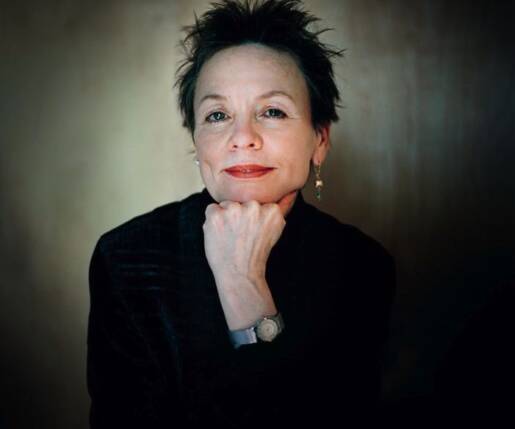Laurie Anderson is an American avant-garde artist, composer, musician, writer, inventor, and filmmaker whose work spans performance art, pop music, and multimedia projects. Initially trained in violin and sculpting, Anderson pursued a variety of performance art projects in New York during the 1970s, focusing particularly on language, technology, and visual imagery. She became more widely known outside the art world when her song O Superman reached number two on the UK singles chart in 1981. Anderson’s debut album Big Science was released in 1982 and has since been followed by a number of studio and live albums. She starred in and directed the 1986 concert film Home of the Brave. Anderson’s creative output has also included theatrical and documentary works, voice acting, art installations, and a CD-ROM. She is a pioneer in electronic music and has invented several musical devices that she has used in her recordings and performance art shows.
Her visual work has been featured in many galleries and museums including in 2003, the Musée d’art contemporain de Lyon in France produced a touring retrospective of her work entitled “The Record of the Time: Sound in the Work of Laurie Anderson”. In 2010 a retrospective of her visual and installation work opened in São Paulo, Brazil and later traveled to Rio de Janeiro.
Her artworks is on long term display at Massachusetts Museum of Contemporary Art MASS MoCA. Her three virtual reality works, “Chalkroom”, “Aloft”, and “To The Moon”, collaborations with the artist Hsin-Chien Huang, were featured in the Cannes Film Festival in 2019 and won several awards including Best VR Experience at the 74th Venice International Film Festival in 2017. Her life partner as well as her collaborator was Lou Reed from 1992 onward. They married in 2008 and worked on numerous projects together until his death in 2013. Anderson lives in New York City.
